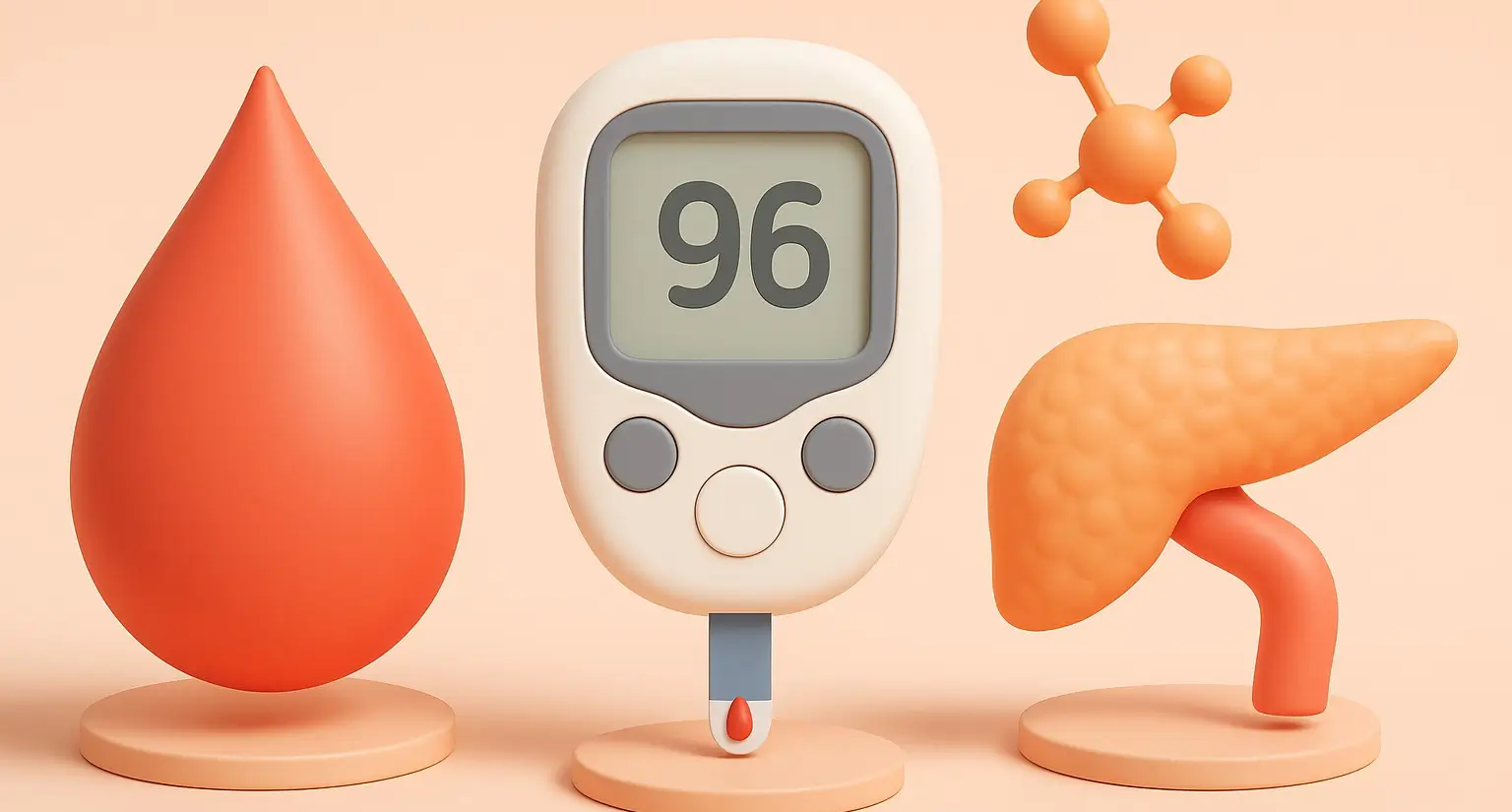- Blood glucose levels are tightly regulated by hormones, mainly insulin and glucagon, to ensure a stable energy supply.
- Dysregulation of this system can lead to diabetes mellitus, characterized by prolonged hyperglycemia.
Hormonal Regulation of Blood Glucose
-
Insulin of Blood glucose:
- Produced by: Beta cells of the pancreas.
- Released in response to: High glucose (after meals).
- Actions: Promotes glucose uptake by cells, stimulates glycogenesis, inhibits gluconeogenesis and glycogenolysis, and supports fat and protein synthesis.
-
Glucagon:
- Produced by: Alpha cells of the pancreas.
- Released in response to: Low glucose (fasting or exercise).
- Actions: Stimulates glycogenolysis and gluconeogenesis in the liver and promotes fat breakdown for energy.
Diabetes Mellitus
- Diabetes is a group of disorders characterized by high blood sugar due to insulin dysfunction.
-
Type 1 Diabetes:
- Cause: Autoimmune destruction of insulin-producing beta cells.
- Onset: Usually in childhood or adolescence.
- Management: Requires insulin injections.
-
Type 2 Diabetes:
- Cause: Insulin resistance and relative insulin deficiency.
- Risk Factors: Obesity, sedentary lifestyle, family history.
- Management: Lifestyle changes (diet, exercise), oral medications, and possibly insulin.
Advertisements
Importance of Diabetes Management
- Proper management prevents complications like retinopathy, nephropathy, neuropathy, and cardiovascular disease.
- This includes regular blood glucose monitoring, adherence to medications, and lifestyle adjustments to maintain glucose levels within target ranges.
- Effective control allows individuals with diabetes to lead healthy lives and reduce the risk of long-term complications.

